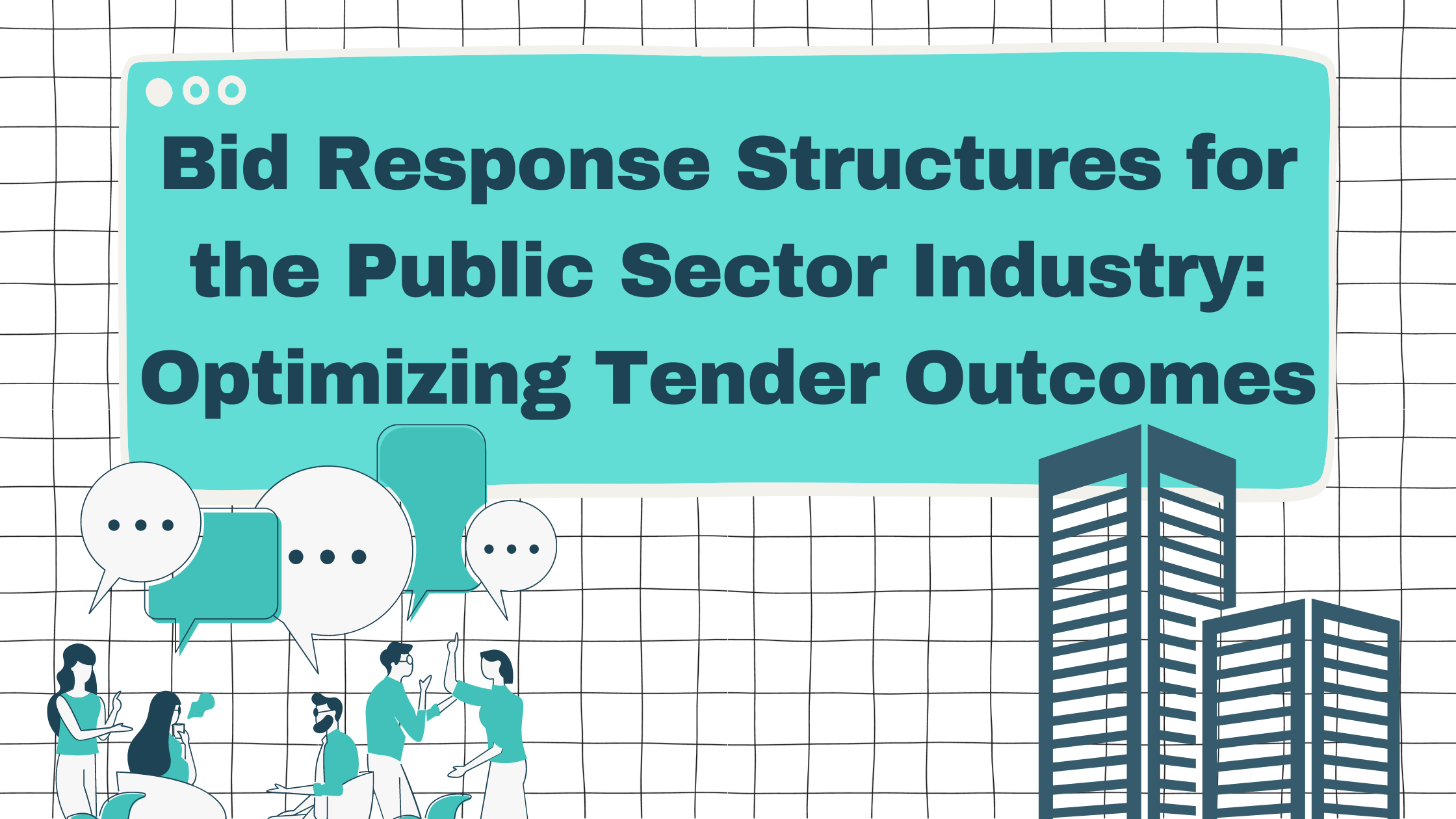RFP Writing and Proposal Writing Services: Securing Government Contracts through Cyber Essentials for SMEs

Need Help with Your Bid?
Get in touch by filling out the form and one of our advisors will be in contact.
Contact UsIf you are a small or medium-sized enterprise (SME) looking to secure UK government contracts, Cyber Essentials is a scheme you need to be aware of. Cyber Essentials is a UK government-backed scheme that aims to help organisations protect themselves against common cyber threats. The scheme provides a set of basic technical controls that organisations should have in place to protect themselves from cyber attacks.
Understanding Cyber Essentials for SMEs is essential if you want to secure government contracts. The scheme is suitable for organisations of all sizes and sectors, and it is mandatory for central government contracts advertised after 1 October 2014. The scheme is designed to provide assurance to potential customers that your organisation takes cyber security seriously and has measures in place to protect against common cyber threats.
Securing Your Business: Key Steps and Controls is the first step towards achieving Cyber Essentials certification. The scheme requires organisations to implement five key controls: secure configuration, boundary firewalls and internet gateways, access control, patch management, and malware protection. By implementing these controls, you can significantly reduce your organisation's risk of falling victim to a cyber attack.
Key Takeaways
- Cyber Essentials is a UK government-backed scheme that helps organisations protect themselves against common cyber threats.
- Cyber Essentials is suitable for organisations of all sizes and sectors and is mandatory for central government contracts advertised after 1 October 2014.
- By implementing the five key controls required by Cyber Essentials, you can significantly reduce your organisation's risk of falling victim to a cyber attack.
Understanding Cyber Essentials for SMEs
https://www.youtube.com/watch?v=ry7wdgc7P94&embed=true
If you are an SME in the UK looking to secure government contracts, it is important to understand what Cyber Essentials is and how it can benefit your business. Cyber Essentials is a government-backed scheme designed to help businesses protect themselves against common online security threats. By achieving Cyber Essentials certification, you can demonstrate to potential clients and supply partners that you take cyber security seriously, giving you a competitive edge.
To achieve Cyber Essentials certification, your business must meet a set of basic technical controls that are designed to protect against the most common cyber threats. These controls include:
- Boundary firewalls and internet gateways
- Secure configuration
- Access control
- Malware protection
- Patch management
By implementing these controls, you can significantly reduce the risk of cyber attacks and protect your business from potential threats. Cyber Essentials certification is valid for 12 months, after which you will need to renew your certification to maintain your status.
It is important to note that Cyber Essentials is not mandatory for every SME in the UK. However, for contracts involving the government and certain other entities, showing that you have this certification can give you a competitive edge. It shows that you take cyber security seriously and have taken steps to protect your business from potential threats.
Overall, achieving Cyber Essentials certification is a great way for SMEs to demonstrate their commitment to cyber security and improve their chances of securing government contracts. By implementing the necessary technical controls and obtaining certification, you can protect your business from potential threats and gain a competitive advantage in the marketplace.
Securing Your Business: Key Steps and Controls
As an SME looking to secure UK government contracts, Cyber Essentials certification is essential. To achieve certification, you must implement key steps and controls to protect your business from cyber threats.
Technical Requirements and Controls
To achieve Cyber Essentials certification, you must implement the following technical requirements and controls:
- Firewalls: A firewall is essential to protect your network from unauthorized access. Ensure that you have a firewall in place and that it is configured correctly.
- Secure Configuration: Ensure that all your devices and software are configured securely. This includes disabling unnecessary services, changing default passwords, and ensuring that software is up to date.
- Malware Protection: Protect your devices from malware by implementing anti-virus software and ensuring that it is up to date.
- Access Control: Implement access controls to ensure that only authorized users can access your systems and data.
- Security Update Management: Ensure that all software and devices are updated regularly to protect against known vulnerabilities.
Implementing Cyber Security Training
Implementing cyber security training is essential to ensure that your employees are aware of the threats and risks posed by cyber attacks. This includes:
- Phishing Awareness: Teach your employees how to identify phishing emails and what to do if they receive one.
- Password Security: Ensure that your employees understand the importance of strong passwords and how to create them.
- Social Engineering: Educate your employees on how to identify and avoid social engineering attacks.
- Reporting Incidents: Ensure that your employees know how to report incidents and who to report them to.
By implementing these key steps and controls and providing cyber security training to your employees, you can protect your business from cyber threats and achieve Cyber Essentials certification.
The Importance of Certification
If you are an SME, the Cyber Essentials certification can help you secure your way to UK government contracts. This certification is a government-backed scheme designed to help organizations protect themselves against common online threats. The certification is awarded to companies that can demonstrate that they have implemented the necessary security controls to protect against cyber attacks.
Benefits of Cyber Essentials Plus
The Cyber Essentials Plus certification is a higher level of certification that provides additional assurance that your organization has implemented the necessary security controls. The benefits of Cyber Essentials Plus include increased confidence from customers and stakeholders, improved cyber security awareness, and reduced risk of cyber attacks. The certification can help SMEs win contracts from larger organizations, as many now require their suppliers to have this certification.
The Role of IASME and NCSC
The Cyber Essentials scheme is managed by the National Cyber Security Centre (NCSC) and delivered by a number of certification bodies, including IASME. IASME is one of the five certification bodies that can certify organizations for the Cyber Essentials scheme. The role of IASME is to assess organizations against the Cyber Essentials requirements and award the Cyber Essentials certification.
The NCSC provides guidance and support to organizations looking to achieve the Cyber Essentials certification. They have also developed a number of resources to help organizations understand the requirements of the certification and how to implement the necessary security controls.
In conclusion, the Cyber Essentials certification is an important step for SMEs looking to secure their way to UK government contracts. The certification provides assurance that your organization has implemented the necessary security controls to protect against cyber attacks. With the help of certification bodies like IASME and the guidance of the NCSC, achieving the Cyber Essentials certification can be a straightforward process.
Securing Government Contracts
If you are an SME looking to secure UK government contracts, it is important to understand the importance of Cyber Essentials certification. The UK government requires all suppliers bidding for public sector contracts to comply with the Cyber Essentials scheme. This means that you will need to demonstrate your commitment to cybersecurity and supply chain security.
Understanding Supply Chain Security
When it comes to securing government contracts, supply chain security is a critical component. The UK government takes supply chain security seriously and requires all suppliers to demonstrate that they have taken appropriate measures to secure their supply chain. This means that you will need to ensure that your suppliers and partners are also Cyber Essentials certified.
To help you understand supply chain security, the Cyber Essentials scheme provides guidance on how to secure your supply chain and protect against cyber threats. By following these guidelines, you can ensure that your supply chain is secure and that you are able to meet the UK government's requirements for supply chain security.
Bidding for Public Sector Contracts
If you are an SME looking to bid for public sector contracts, it is important to understand the requirements for Cyber Essentials certification. The Cyber Essentials scheme is a government-backed, industry-supported scheme designed to help organisations protect themselves against common online threats.
To bid for public sector contracts, you will need to demonstrate that you have achieved Cyber Essentials certification. This means that you will need to undergo an assessment to ensure that you have implemented the required controls and that your systems are secure.
Once you have achieved Cyber Essentials certification, you will be able to bid for public sector contracts with confidence, knowing that you have met the UK government's requirements for cybersecurity and supply chain security.
In conclusion, if you are an SME looking to secure UK government contracts, Cyber Essentials certification is essential. By understanding supply chain security and the requirements for bidding for public sector contracts, you can ensure that you are able to meet the UK government's requirements and secure valuable contracts.
Cyber Threats and How to Mitigate Them
As an SME, you face a range of cyber threats that can compromise the security of your business. Cyber attacks are becoming increasingly common, and the impact of a successful attack can be devastating. In this section, we will discuss some of the most common cyber threats and how you can mitigate them.
Cyber Attacks
A cyber attack is a deliberate attempt to breach the security of your computer systems, networks, or devices. Cyber attacks can take many forms, including malware, phishing, and ransomware. Malware is a type of software that is designed to damage or disrupt computer systems, while phishing is a type of social engineering attack that uses email or other messaging platforms to trick users into providing sensitive information. Ransomware is a type of malware that encrypts your files and demands payment in exchange for the decryption key.
To mitigate the risk of a cyber attack, you should implement a range of technical and organizational measures. Technical measures include using anti-virus software, keeping your software up-to-date, and using firewalls to protect your networks. Organizational measures include training your employees on how to recognize and respond to cyber threats, implementing access controls to limit the risk of insider threats, and developing an incident response plan to minimize the impact of a successful attack.
Cyber Threats
Cyber threats are any action that poses a risk to your computer systems, networks, or devices. These threats can come from a variety of sources, including hackers, insiders, and external parties. Some common cyber threats include phishing attacks, social engineering attacks, and denial-of-service attacks.
To mitigate the risk of cyber threats, you should implement a range of technical and organizational measures. Technical measures include using encryption to protect your sensitive data, implementing multi-factor authentication to prevent unauthorized access to your systems, and using intrusion detection systems to monitor your networks for suspicious activity. Organizational measures include training your employees on how to recognize and respond to cyber threats, implementing access controls to limit the risk of insider threats, and developing an incident response plan to minimize the impact of a successful attack.
Ransomware
Ransomware is a type of malware that encrypts your files and demands payment in exchange for the decryption key. Ransomware attacks can be devastating, as they can result in the loss of sensitive data and the disruption of business operations.
To mitigate the risk of ransomware, you should implement a range of technical and organizational measures. Technical measures include using anti-virus software, keeping your software up-to-date, and using firewalls to protect your networks. Organizational measures include training your employees on how to recognize and respond to ransomware attacks, implementing access controls to limit the risk of insider threats, and developing an incident response plan to minimize the impact of a successful attack.
In conclusion, cyber threats are a significant risk to the security of your business. By implementing a range of technical and organizational measures, you can mitigate the risk of cyber attacks, cyber threats, and ransomware.
Ensuring Compliance and Maintaining Assurance
To ensure that your small or medium enterprise (SME) is compliant with the Cyber Essentials scheme, it is important to continuously monitor and improve your cybersecurity posture. This includes addressing any new or evolving threats and ensuring ongoing compliance with the Cyber Essentials requirements. Renewing your certification annually demonstrates your commitment to cybersecurity.
Maintaining assurance requires a proactive approach to cybersecurity. You should regularly review your security policies and procedures to ensure they are up-to-date and effective. This includes conducting regular risk assessments to identify potential vulnerabilities and threats.
As an SME, it is important to understand the compliance requirements of the Cyber Essentials scheme. Compliance involves implementing the necessary controls to protect your information assets from cyber threats. These controls include firewalls, secure configuration, access control, malware protection, and patch management.
To ensure compliance, you should consider engaging with a trusted third-party provider to assist with the implementation of the Cyber Essentials controls. This can help you to identify any gaps in your cybersecurity posture and provide guidance on how to address them.
Information assurance for SMEs is critical to protecting your business from cyber threats. It involves ensuring the confidentiality, integrity, and availability of your information assets. This includes protecting against unauthorized access, ensuring data is accurate and complete, and ensuring that your systems are available when needed.
AIG, a leading insurance provider, offers cyber insurance policies designed specifically for SMEs. These policies provide coverage for a range of cyber risks, including data breaches, business interruption, and cyber extortion. By partnering with AIG, you can ensure that your business is protected against the financial impact of a cyber attack.
Frequently Asked Questions
What is the process for becoming Cyber Essentials certified?
The process for becoming Cyber Essentials certified involves completing a self-assessment questionnaire that covers five key areas of cybersecurity: boundary firewalls and internet gateways, secure configuration, user access control, malware protection, and patch management. Once you have completed the questionnaire, you will need to have your answers verified by an external certifying body. You can find a list of certifying bodies on the National Cyber Security Centre's website.
What are the benefits of achieving Cyber Essentials certification?
Achieving Cyber Essentials certification can help you demonstrate to your customers, partners, and suppliers that you take cybersecurity seriously. It can also help you identify areas where you can improve your cybersecurity posture and reduce your risk of cyber attacks. In addition, achieving Cyber Essentials certification can help you win new business, particularly if you are looking to work with UK government organizations.
How can Cyber Essentials certification help SMEs win UK government contracts?
Cyber Essentials certification is a requirement for all suppliers bidding for UK government contracts that involve handling sensitive and personal information or the provision of certain technical products and services. Achieving Cyber Essentials certification can therefore help SMEs compete for and win UK government contracts.
What is the difference between Cyber Essentials and Cyber Essentials Plus certification?
Cyber Essentials certification involves a self-assessment questionnaire and an external verification process. Cyber Essentials Plus certification involves the same self-assessment questionnaire and an external verification process, as well as an additional technical assessment of your systems and devices. Cyber Essentials Plus certification is therefore a more rigorous form of certification that provides a higher level of assurance to customers, partners, and suppliers.
What are the requirements for achieving Cyber Essentials Plus certification?
To achieve Cyber Essentials Plus certification, you must first achieve Cyber Essentials certification. You must then undergo a technical assessment of your systems and devices by an external certifying body. The technical assessment will involve vulnerability scans, penetration testing, and other tests to identify any weaknesses in your systems and devices.
Are there any specific government contracts that require Cyber Essentials certification?
All suppliers bidding for UK government contracts that involve handling sensitive and personal information or the provision of certain technical products and services are required to have Cyber Essentials certification. In addition, some government departments and agencies may require Cyber Essentials certification as a condition of doing business with them. You can find more information on the GOV.UK website.
Ready to start your search?
Get in touch by filling out the form to the right and one of our advisors will curate a personalised selection for you.
Get in touchBlogs. Guides. Helpful advice.

Mastering Proposal and RFP Writing for Government and Public Sector Opportunities

Proposal and RFP Writing Services: Enhancing Public Sector Tender Outcomes

.svg)